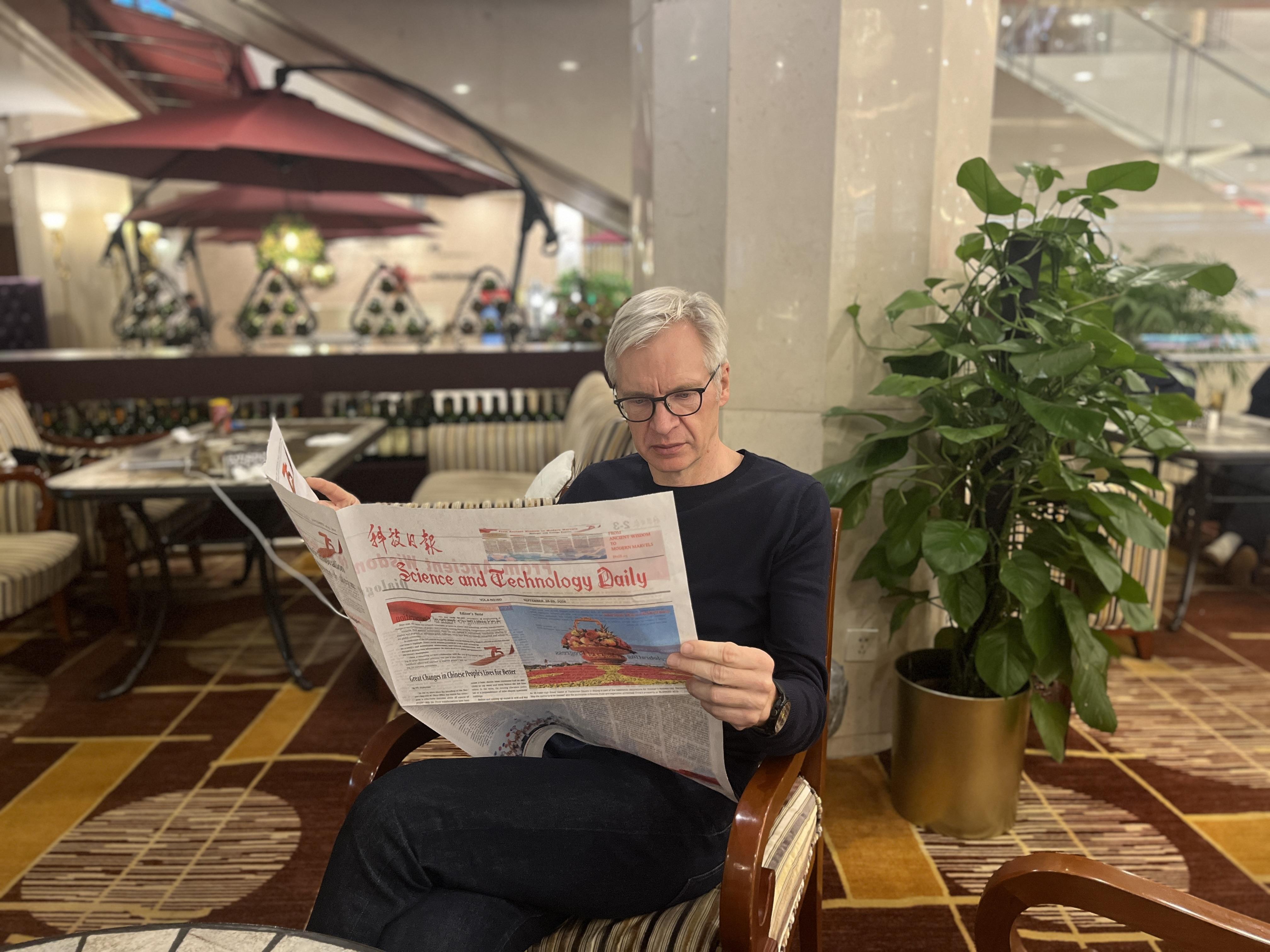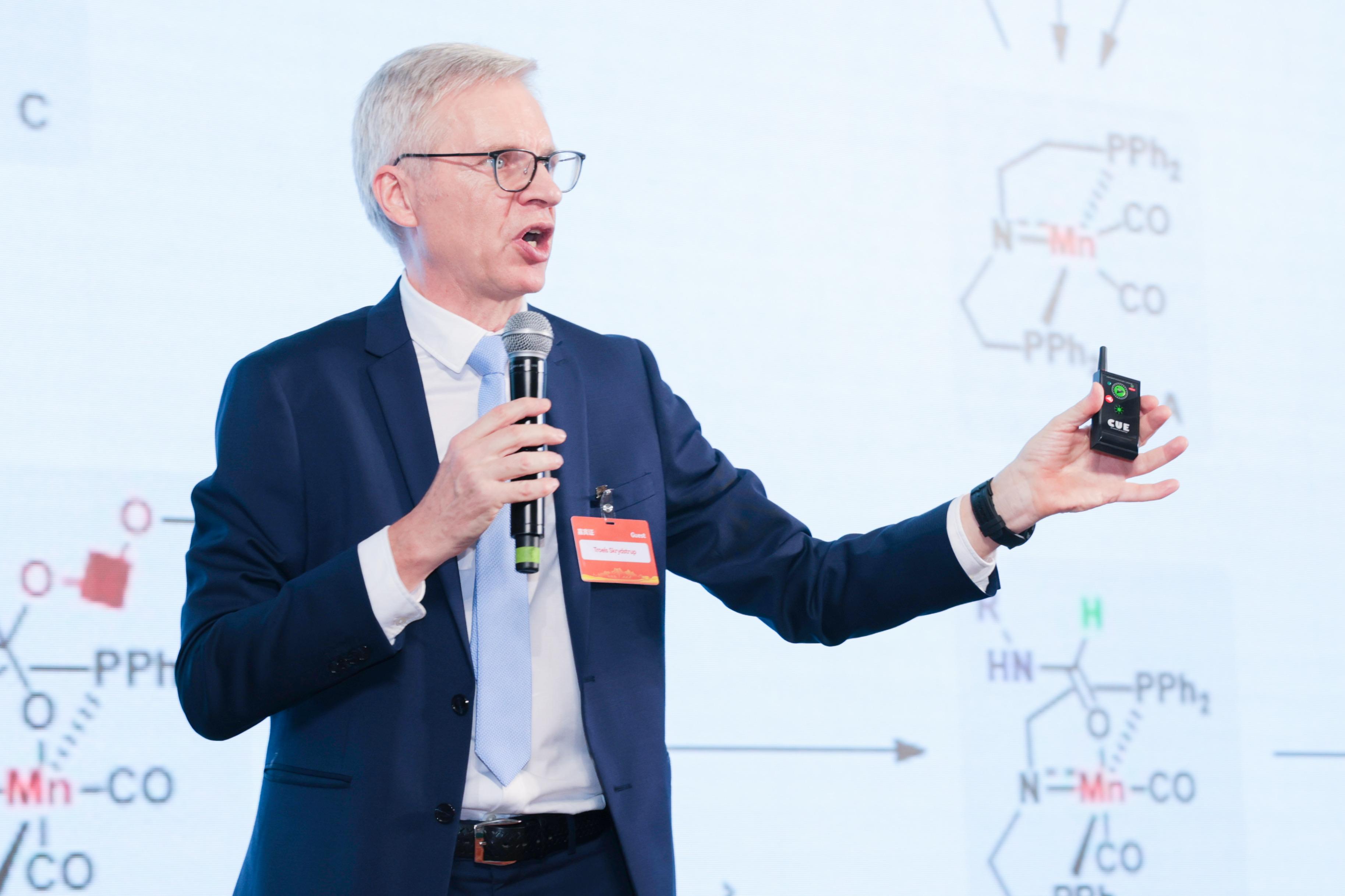A Curious Mind for Science Communication

Danish chemistry Professor Troels Skrydstrup, from Aarhus University, has a passion for engaging with young minds and often takes his inquisitive students on sci-tech journeys. The most recent adventure on October 23 had them exploring carbon neutrality, where Skrydstrup's dedication to science communication was on full display, as he sought to ignite curiosity and responsibility in the next generation of scientists.
"They are the ones who will be addressing future challenges and need to take the helm and find solutions. These science outreach activities [also] show the fact that science can indeed be fun," he said.
Advancing green development
Skrydstrup's research is focused on critical environmental issues, including carbon neutrality, CO2 activation, plastic waste recycling, and isotopic labeling of compounds. He is a firm believer in the urgent need for humanity to reduce its CO2 emissions while simultaneously capturing and removing carbon from the atmosphere.
He highlighted the critical role of decarbonization and the transition to clean energy. Currently, we are using fossil fuels as our primary energy source, and burning these fuels leads to enormous CO2 emissions — about 35 gigatons per year.
Direct air capture means using technologies that can take CO2 directly from the air, but it's not enough to only depend on this method, according to Skrydstrup. Nature already has a great system for this and plants are experts at absorbing CO2. "But to truly make an impact, we need to combine reducing emissions with actively removing CO2," he said.

Green partnership for sustainability
"To combat climate change is the mission of humanity," Skrydstrup said, adding that solving environmental issues requires global collaboration.
To emphasize this, he mentioned how Denmark and China have long collaborated on sustainable development, with a renewed focus under the Green Joint Work Programme for 2023-2026, which builds on their earlier cooperation from 2017-2020. This partnership aims to foster green cooperation across various sectors, tackling global challenges such as climate change, CO2 emissions, and energy transition.
Skrydstrup is optimistic about the role Denmark and China can play together in tackling global environmental challenges. "Both countries have made ambitious commitments, and while we may not have all the technologies yet, the collaboration between China and Denmark could help us achieve these targets faster."
Promoting sustainability
When asked about China's efforts in promoting sustainable development, Skrydstrup said: "China is probably the most active country in sustainable development today. It is now a leader in renewable energy technologies, especially solar power and wind energy."
He is also impressed with China's ability to accelerate technological advancements due to its unique infrastructure and government structure. "China can scale up technologies very quickly, which is exciting for scientists," he said, adding that China is an ideal partner for collaboration and the exploration of new opportunities for innovation.
From his perspective, China has the size and capability to implement technologies rapidly. "Once a decision is made, it is executed swiftly, such as the widespread adoption of some green technologies," he said.
Skrydstrup also spoke about his interest in forming an international platform for plastic recycling, a concept he is currently exploring with both Chinese and Danish partners. This platform could serve as a global hub for green technology development, especially in plastic waste management, an area where China and Denmark both have much to contribute.
Taking responsibility
"Be curious, be courageous, and take responsibility. Those are the qualities that will help young scientists make a difference," is Skrydstrup's encouraging message to the younger generation.
He believes that the challenges scientists face today, such as limited funding and the growing complexity of research, are outweighed by the potential to create meaningful solutions. "If you believe in the importance of your science, even rejections won't matter because you're working toward something good."
"Maintaining a curious mind" is a slogan Skrydstrup holds dear. By constantly shifting his research focus every decade, he has remained at the cutting edge of science. His recent work on plastic recycling, as well as his earlier contributions to pharmaceuticals show his philosophy of innovation and adaptation.
This article was also contributed by China Association for International Exchange of Personnel.







